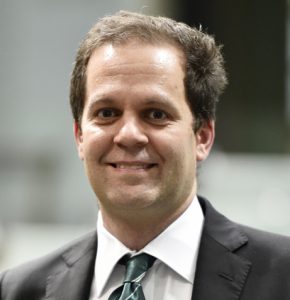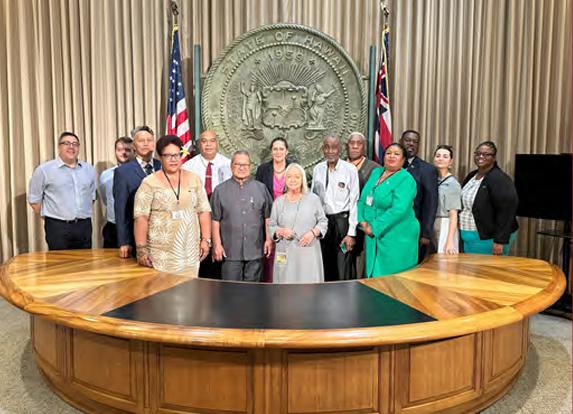In the Australian House of Representatives (the House), the use of unparliamentary language is governed by Standing Orders relating to Disorder. The Standing Orders outline the following instances of Disorder:
- ‘A Member must not refer disrespectfully to The Queen, the Governor-General, or a State Governor, in debate or for the purpose of influencing the House in its deliberations.
- A Member must not use offensive words against:
- either House of the Parliament or a Member of the Parliament; or
- a member of the Judiciary.
- All imputations of improper motives to a Member and all personal reflections on other Members shall be considered highly disorderly.’2
Standing Order 91 further highlights that ‘a Member’s conduct shall be considered disorderly if the Member has … used objectionable words, which he or she has refused to withdraw’. House of Representatives Practice (Reps Practice) also notes that ‘A Member is not allowed to use unparliamentary words by the device of putting them in somebody else’s mouth, or in the course of a quotation.’3
Other than the specific instances highlighted in Standing Orders 88-90, the Standing Orders do not define ‘objectionable words’. Reps Practice indicates that the decision rests with the Chair: ‘The determination as to whether words used in the House are offensive or disorderly rests with the Chair, and the Chair’s judgment depends on the nature of the word and the context in which it is used.’4
This is in line with Standing Order 60: ‘The Speaker, or the occupier of the Chair of the House at the time, shall keep order in the House’.
Unparliamentary language or conduct can be raised either by a Member as a Point of Order for the Speaker or Chair’s determination, or by the Speaker themselves. The Speaker is empowered by Standing Order 92 to intervene where a Member’s conduct may be offensive or disorderly. If the Speaker determines that the language or conduct breaches the Standing Orders, the most common response is to request that the offending Member withdraw the unparliamentary language. In most cases, the Member does so. Other disciplinary measures are available to the Speaker under Standing Order 94, such as a direction to leave the Chamber for a one-hour period, or naming and moving to suspend the Member.
The role of the Presiding Officer
As highlighted by the Standing Orders, the Speaker is the ultimate arbiter for determining what constitutes disorder and, consequently, unparliamentary language. The Clerk of the House observes that the uncertain definition of what constitutes ‘unparliamentary language’ allows for the Speaker to take a principles-based approach: ‘The Speaker may be guided by relevant precedents and rulings by former Speakers, such as those cited in House of Representatives Practice. While it could be argued that the current absence of specific types of ‘offensive’ or ‘objectionable’ words in the Standing Orders is a concern, it does mean that the Speaker is not restricted if faced with unanticipated circumstances and can take context into account.’5
Similarly, the current Speaker of the Australian House of Representatives, Hon. Milton Dick, MP, highlights that the broad outlines contained in the Standing Orders enable the Speaker to reflect evolving community standards: ‘Speakers’ rulings over time have changed. In the same way that standards of dress have evolved since the first sitting of Australia’s Parliament, what constitutes acceptable language and behaviour has also evolved. For example, some inherently sexist language or behaviour may once have been somewhat tolerated but is no longer considered acceptable in contemporary Australia or in today’s Parliament. Similar comparisons can be made regarding actions that discriminate or are exclusionary based on race, disability, or sexual orientation.’6
The flexibility in practice enables the Speaker to adapt to both the context in the specific instance and to broader changes in society. As the Standing Orders in relation to unparliamentary language and conduct have generally been interpreted to be applicable to a broad range of behaviours and language, they have been infrequently amended.7
Notwithstanding the Speaker’s capacity to flexibly respond to the situation at hand when making rulings, this can result in inconsistent rulings. As illustrated below, offensive language that may be considered a breach of Standing Orders may not be ruled out of order in a different context or under a different Chair.
Context is everything: Examples of unparliamentary language
For this article, we focus on both quantitative analysis of unparliamentary language in addition to several case studies from the House. This highlights how much context matters in unparliamentary language.
Study of 2022-23 instances of unparliamentary language in the House of Representatives
Between 2 August 2022 and 22 June 2023, there were 68 Speaker’s rulings regarding unparliamentary language, in almost all instances requesting that the Member withdraw the offending language. There was only one instance where a Member refused to withdraw, and in two other cases, on appeal from a Member or Members, the Speaker undertook to consider and review specific instances. Of these, 15 instances were unrecorded by Hansard.
Unparliamentary language is most common during Question Time, with 25 recorded instances during that time of the day during the reviewed period. The next most common times were during time reserved for Matters of Public Importance (12 instances) and Bills debate (eight instances).
The content of unparliamentary language was largely in relation to personal reflections, comprising 35% of recorded rulings. The second- and third-most common forms of unparliamentary language relate to allegations of corruption and imputations of lying. This is reflective of the historical origins of the concept, as discussed earlier in this article. However, while many Members referred to broader investigations (including Royal Commissions or court cases) which had made adverse findings, it is still considered disorderly to ascribe improper motives to another Member even where external processes may have done so.
Finally, gender is a significant parameter in unparliamentary language. The majority of recorded rulings were by male Members (60%, as opposed to 10% by women; the remainder were unidentified speakers). This finding does not necessarily indicate that men are more likely to breach the rules of the House; higher rates of male Members using unparliamentary language may be reflective of their having more speaking opportunities than women, such as in positions of higher duties (e.g. as Ministers or as parliamentary office holders).
Individual examples
There are limitations with this study, particularly in relying on instances where the Speaker has determined that the relevant Standing Order has been breached and where Hansard has been able to capture the words expressed, which may not be inclusive of all unparliamentary language uttered. In addition, the sourced data is from the House (including the Federation Chamber) and does not include Hansard transcripts of public hearings of Parliamentary Committees.
A closer examination of instances of unparliamentary language highlights the importance of context in the Chair’s determination of whether the Standing Orders have been breached or otherwise. The following examples are included in exactly the form as recorded in Hansard (or other formal sources). Readers should be aware that some of the language below may be upsetting.
As noted earlier, Reps Practice highlights that ‘A Member is not allowed to use unparliamentary words by the device of putting them in somebody else’s mouth, or in the course of a quotation’. Yet we can find instances where this prohibition is not followed.
In making her valedictory speech in 2022, then Member for Boothby, Ms Nicolle Flint, MP highlighted the abuse she had experienced as a Parliamentarian based on her gender. On this occasion, Hansard’s record contains all words as spoken in full: ‘I want to be very clear about the sort of behaviour that I’m talking about. Men on the Left, some of whom are public figures of influence, have done the following: stalked me; suggested I should be strangled; criticised the clothes I wear and the way I look; repeatedly called me a whiny little bitch; repeatedly called me weak, a slut, a dick-hole—and I apologise for the language—and much, much worse over email, online, on YouTube, on Facebook, and on Twitter. They’ve commented that I should be raped, grudge-fucked, that I am doing sexual favours for all my male colleagues, that I should be killed, that I should kill myself, and many, many more things that I will not repeat here. These men have also consistently reminded me that I deserve everything that has happened to me.’8
Immediately before this, Ms Flint had said:
‘It’s tempting to describe the Leader of the Opposition with a single word, a four-letter word. It begins with L and ends with R. But that would be unparliamentary, so I won’t.’9
It is notable that, even in a speech containing the above language, the Member was unwilling to use the ‘unparliamentary’ term of describing another Member as a ‘liar’, highlighting that reflecting on a Member remains the most prohibited form of speech in debate. It is also noteworthy that despite the Member’s allusion to the use of an unparliamentary term, an act which could be ruled out of order, her comments were permitted without interjection.
A contrasting example can be found more recently. When making a statement on the International Day for the Elimination of Violence against Women in 2023, the Member for North Sydney, Ms Kylea Tink, MP spoke of her experience of abuse since becoming an MP: ‘I’ve now been subject to gender based bullying and harassment online, as I suspect many of my colleagues have. I believe we’d all be subjected to a similar daily barrage of abuse from cowards hiding behind their keyboards. But even knowing this as I took on this role, some of the messages that I’ve received during this time have been truly breathtaking, with one of the more recent—and I’ll apologise in advance for offence— saying, ‘You ****ing ugly big nosed slut. And you’re a fat ****. Climate change is bullshit.’10
Notably, Ms Tink was directly quoting a message (as opposed to the general sense of messages relayed by Ms Flint), and yet ‘fuck’ (as part of ‘fucking’) is here indicated with asterisks, as is another word, yet ‘slut’ and ‘bullshit’ are both transcribed.
Conclusion
Unparliamentary language is a complex issue for Parliaments to manage. Parliaments need to balance competing priorities in regulating the terms and nature of their debates: raising standards of behaviour and creating a workplace which is more inclusive and reflective of the community; maintaining Parliamentarians’ appropriate use of privilege to discuss matters of importance; and allowing debate without encouraging personal clashes. Parliaments, and particularly Presiding Officers managing debates, have an unenviable task in making determinations, often in the moment itself. However, as shown in this article, context is crucial but the application of consistent principles is as important as flexibility.
This is an extract of a longer paper by Joel Bateman and Ophelia Tynan from the Parliament of Australia presented at the Australasian Study of Parliament Group (ASPG) Conference in 2023 in Perth, Western Australia and published in the Australasian Parliamentary Review, Spring/Summer 2023 (Vol 38 No 2). Visit www.aspg.org.au.



 Joel Bateman and Ophelia Tynan work at the Department of the House of Representatives at the Parliament of Australia.
Joel Bateman and Ophelia Tynan work at the Department of the House of Representatives at the Parliament of Australia. 

